Nereus in the News — Friday, November 24
Nereus Program research featured in the Independent, National Geographic, Radio New Zealand, Newsweek, Huffpost UK, ABC Spain, and more.
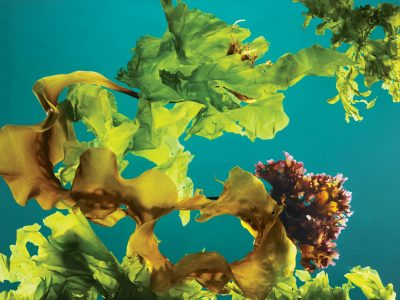
Nereus Program research featured in the Independent, National Geographic, Radio New Zealand, Newsweek, Huffpost UK, ABC Spain, and more.
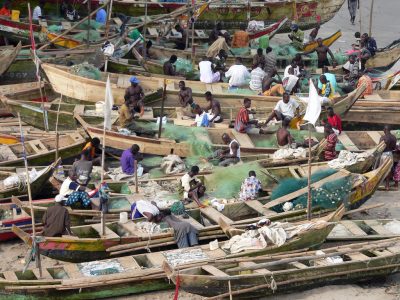
West Africa may be one of the most vulnerable regions to climate change. The region is highly dependent on fisheries for livelihoods and as an important food source. The marine resources of West Africa are currently threatened by overfishing and climate change-induced ocean warming could see fish stocks migrate away from the area and into cooler waters. If CO2 emissions continue at their current levels, the region could see a 50% decline in fisheries-related jobs and a total annual loss of US$311 million, found a study by Nereus Program researchers.
Nereus Research Associate Vicky Lam (UBC) and Fellow Muhammed Oyinlola (UBC) will be attending the Conference on the West Africa Regional Fisheries Program (WARFP) February 13-14 in Saly, Senegal. Jointly…
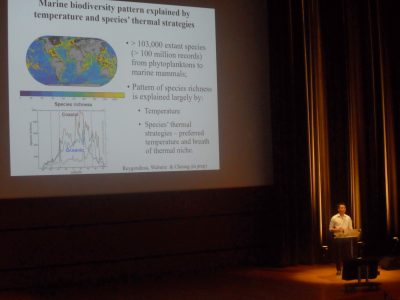
Nereus Director of Science William Cheung was a plenary speaker at the ‘International Conference on Scenarios and Models of Biodiversity and Ecosystem Services in Support of Decision-Making’. He discussed the linking of models and scenarios for marine biodiversity and ecosystems to support policies at regional to global scales. Nereus Fellow at UBC Muhammed Oyinlola presented a poster on his project on developing models and scenarios for the future of global mariculture under global change.
Nereus Director (Science) William Cheung will be a plenary speaker at the ‘International conference on scenarios and models of biodiversity and ecosystem services in support of decision-making’ from August 24…
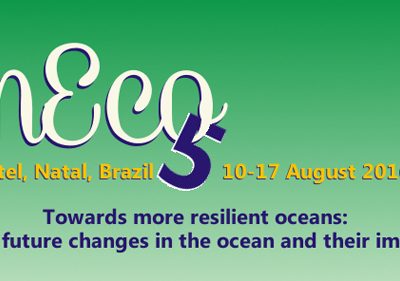
Nereus Fellow at UBC Muhammed Oyinlola attended the ClimEco5 Summer School organized by the Integrated Marine Biogeochemistry and Ecosystem Research project (IMBER), titled ‘Towards more resilient oceans: Predicting and projecting future changes in the ocean and their impacts on human societies’. The summer school took place from August 10 to 17, in Natal, Brazil.
Nereus Fellow at UBC Muhammed Oyinlola will attend the ClimEco5 summer school organized by the Integrated Marine Biogeochemistry and Ecosystem Research project, titled ‘Towards more resilient oceans: Predicting and projecting…
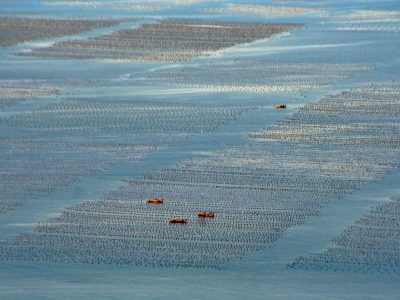
by Muhammed Oyinlola, Nereus Fellow
Aquaculture, the farming of aquatic species, is gradually becoming an important aspect of solving the challenge of global food security. The supply of seafood from fisheries is declining; fish stocks can only be increased if we reduce our fishing pressures, yet governments continue to subsidize the fishing industry for us to fish more. Hence, the open window we have is aquaculture. My argument is that we need to change from hunting in the ocean to farming the oceans just the way we changed hunting on land to producing animal protein by farming. Can aquaculture be our best option to increase the seafood supply for the world’s ever increasing population?
by Muhammed Oyinlola, Nereus Fellow
Unknowingly to us, we leave remnant wherever we go, a footprint to tell others that “I was here”, the café shop mug with our fingerprint, the lady at the supermarket with our smile, our precious advise to our colleague at work, or our quest to solve other people’s problems (let’s focus on our good sides). However, we do create some problems intentionally or unintentionally. One thing is for sure — we will definitely leave part of us behind, either good or bad.